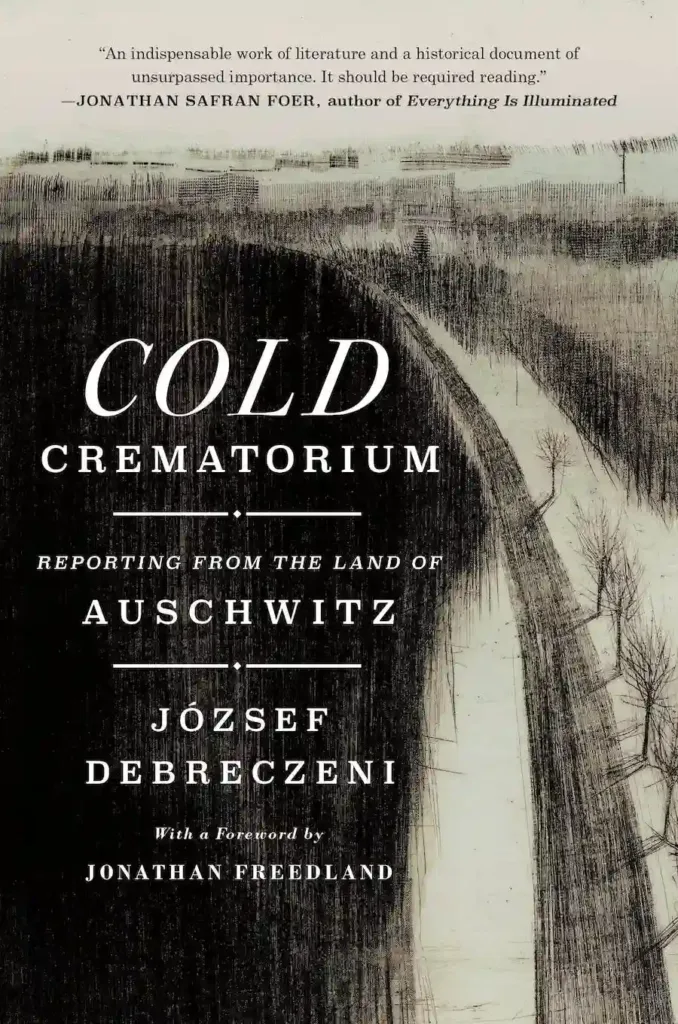Book Summary of Cold Crematorium
Cold Crematorium is a scorching survival memoir, a memory of horror, crafted by a man who consistently managed to beat close death. Debreczeni went into Auschwitz in 1944 with mortality’s clock running—the selection to go into the gas chambers usually was instantaneous. Yet he made it through. From there, he was transferred through several camps before reaching Dörnhau—the infamous “cold crematorium,” a grim euphemism for the ad hoc infirmary in which prisoners were allowed to die of starvation, disease, and neglect. What distinguishes this memoir is not so much the terrible content, but how Debreczeni writes: with a journalist’s clarity, a poet’s sensitivity, and a survivor’s ruthless candour. No sentimentalising here. No pseudo-inspiration. He does not try to inspire; he tries to report the truth—accurate, unambiguous, and merciless. A product of the immediate post-war period, Cold Crematorium freezes in time the immediacy of trauma and weighs it down with retrospect. It is a book that reminds us not only of the kind of evil man is capable of, but also of the ongoing relevance of witnessing—however unwilling the world may be to hear.
Author Intro
József Debreczeni
As a Hungarian journalist and poet József Debreczeni developed a writing style characterized by sharpness and humanity which combined to give his work deep seriousness and precise emotion. Debreczeni experienced one of history’s most tragic eras during his lifetime which began in the early 20th century. Debreczeni managed to survive Auschwitz as well as multiple other concentration camps which included the labor camp Dörnhau. Debreczeni began writing down his experiences as soon as he was freed from captivity in 1945 which led to the creation of Cold Crematorium. The book first appeared in Hungarian print in 1950 but failed to receive broader recognition because Cold War politics and a disturbing increase in antisemitism stood in its way. His testimony serves as an individual and collective illustration of endurance against systematic destruction.
Book Reviews of Cold Crematorium
This book deserves to stand beside Primo Levi and Elie Wiesel in the canon of Holocaust memoirs. Cold Crematorium is raw, immediate, and ethically urgent. Debreczeni doesn’t filter his experience for comfort or narrative cohesion. He reports the machinery of death, the indifference, the fleeting humanity—and the staggering cost of survival. His words aren’t stylized for effect—they carry the weight of real-time witnessing. It’s essential reading, not just as history, but as moral testament.
Cold Crematorium is not an easy read—nor should it be. The prose is stark, almost clinical at times, which makes its emotional resonance all the more powerful. For those accustomed to more narrative-driven Holocaust memoirs, this may feel elliptical or fragmentary. But that fragmentation is the truth of the experience. Its belated translation into English is a loss finally being rectified. It belongs in every curriculum and on every shelf that houses historical testimony.
This book hurt to read. And I think that’s exactly the point. My grandparents never talked much about what they endured, and Cold Crematorium gave me a haunting glimpse into what they might’ve experienced. It’s not just the suffering—it’s the eerie quietness of cruelty, the systematic stripping away of humanity. Debreczeni gives voice not just to the dead, but to the moments before death—the waiting, the not-knowing, the fading. It shattered me, and I’ll be forever grateful for it.
This is not a “beautiful” book, and that’s exactly its strength. Debreczeni is not trying to sculpt prose; he’s trying to make sense of the unspeakable, or at least make sure we never forget it. The metaphor of the “cold crematorium”—a place where people are left to die without even the pretense of care—is one of the most chilling and effective allegories I’ve encountered in Holocaust literature. A searing, necessary rediscovery.





